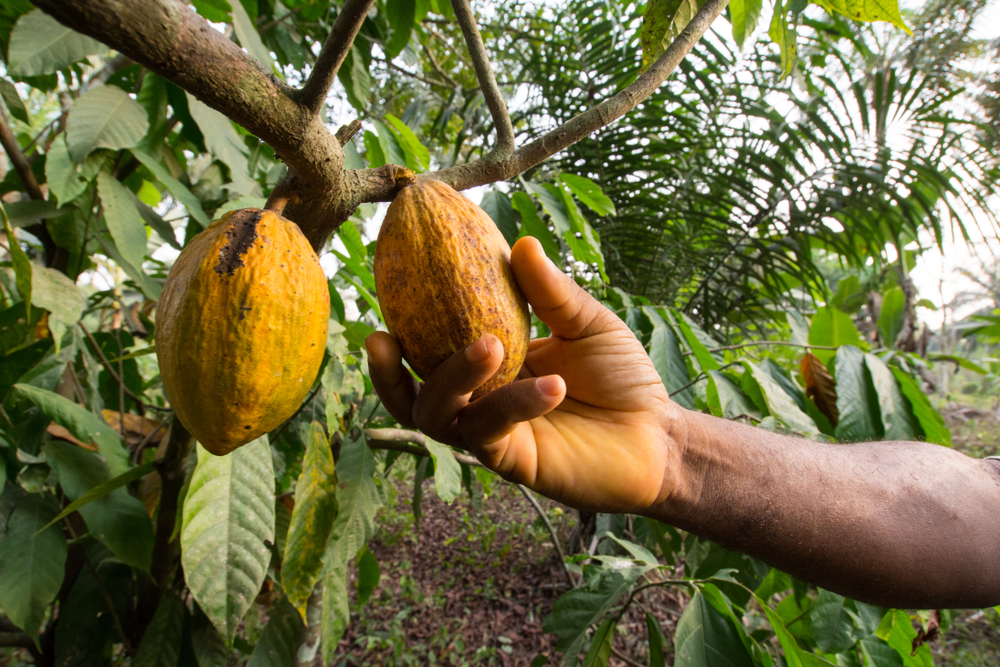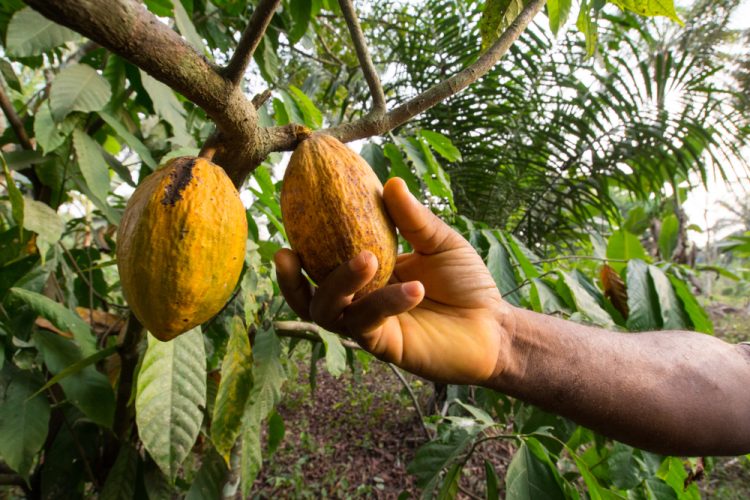New framework signed to tackle child labour in West Africa’s cocoa-growing regions

Côte d’Ivoire, Ghana, and the cocoa industry sign a landmark agreement to combat child labour and improve community welfare.


A new agreement to combat child labour in the cocoa-growing regions of Côte d’Ivoire and Ghana was signed yesterday by key stakeholders, including the World Cocoa Foundation, the Governments of Côte d’Ivoire and Ghana, and the United States Department of Labor.
The 2024 Framework of Action aims to accelerate efforts to eliminate child labour by fostering a coordinated, multistakeholder approach.
Between them, Côte d’Ivoire and Ghana contribute almost 60 percent of the world’s cocoa. This framework recognises the urgent need for collective action to address the root causes of child labour, with a focus on immediate, coordinated responses. By defining clear roles and responsibilities for each signatory, it aims to ensure effective implementation and mobilise additional support for child labour prevention initiatives.
Dominique Ouattara, First Lady of Côte d’Ivoire and President of the National Oversight Committee for actions against child trafficking, exploitation, and child labour (CNS), welcomed the agreement, stating: “This new partnership agreement between Côte d’Ivoire, Ghana, the United States, and the cocoa and chocolate industry is a new hope for better results in the fight against child labour, thanks to our combined efforts and the pooling of our resources.
“We will continue to coordinate and monitor the implementation of all the initiatives and actions of this new 2024-2029 Framework of Action, in line with our mission. I sincerely hope that all national players and our international partners will contribute in order to promote the well-being of our children.”
Key commitments
The Framework focuses on several key areas aimed at improving the lives of children and families in cocoa-growing communities. These include improving child labour monitoring systems, enhancing access to quality education and vocational training, strengthening social protection services, and empowering women and youth in cocoa farming communities.
Furthermore, it seeks to increase household income and promote social dialogue at the community level to address the root causes of child labour.
A major focus will be aligning private child labour monitoring systems with national frameworks, such as Côte d’Ivoire’s Système d’Observation et de Suivi du Travail des Enfants (SOSTECI) and Ghana’s Child Labor Monitoring Systems (GCLMS). These systems will ensure transparency and coordination across the region, making it easier to identify and address issues of child labour.
Ghana’s Minister of Employment and Labour Relations, Ignatius Baffour Awuah, emphasised Ghana’s “dedication and renewed commitment” to eliminating child labour and collaborating with all partners to achieve the goals of the agreement.
The Framework also prioritises improving social services and strengthening national child protection systems to provide safer environments for children.
Following this agreement, an Action Plan will be developed within six months to specify the activities each signatory will undertake, define collaborative programmes, and set progress indicators to track the impact of the initiative.
“A significant step forward”
Chris Vincent, President of the World Cocoa Foundation, believes the scheme will have a positive impact on the regions.
He said, “The 2024 CLCCG Framework of Action represents a significant step forward in our shared mission to combat child labour in cocoa-growing communities. It underscores the cocoa and chocolate industry’s steadfast commitment to help foster sustainable livelihoods and help children thrive.
“The World Cocoa Foundation greatly values the collaboration of our CLCCG partners—the Governments of Côte d’Ivoire and Ghana, the United States Department of Labor, and other key stakeholders—whose dedication and expertise have been crucial to advancing this mission.”
This new partnership represents a long-term commitment to tackling the systemic challenges of child labour in cocoa-growing communities and to improving the prospects of West Africa’s cocoa farmers and their families.
Source: newfoodmagazine.com

